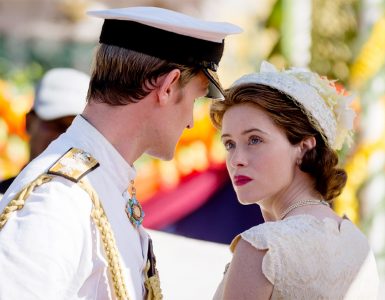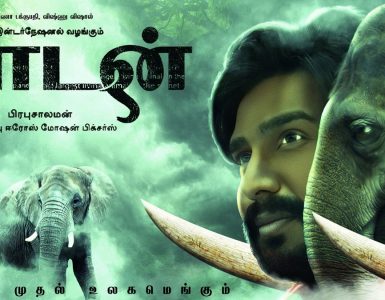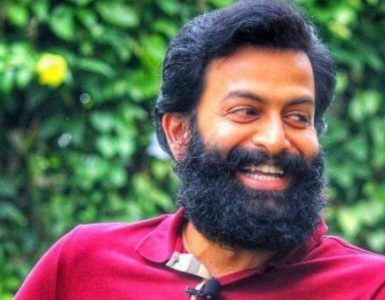Chadwick Boseman’s unfortunate passing at 43 years old has come as a stun to the world. In any case, his battles with a lethal illness didn’t obstruct his presentation in the splendid movies that made his 12-year-long profession. The entertainer’s job as Black Panther prevailed upon hearts all the world for his presentation, but since of what it implied for dark portrayal on-screen.
Outside of his hero persona, Boseman additionally assumed some vital anecdotal jobs portraying notable individuals from the African American population—including Jackie Robinson, James Brown, and Thurgood Marshall—and reproducing their accounts for the advanced crowd. Here, 7 incredible Chadwick Boseman movies to watch on Netflix, Amazon Prime Video and Disney+ Hotstar.
7 incredible Chadwick Boseman movies to watch on Netflix, Amazon Prime Video and Disney+ Hotstar
1. Get On Up (2014)
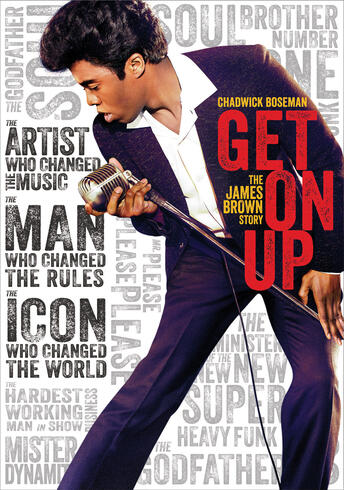
IMDB: 6.9/10
A historical film, Get On Up, narratives the life of American vocalist James Brown. It grandstands his music utilization to adapt to upset adolescence and make an unexpected companion in jail who causes him to get out and seek after a melodic vocation.
James’ developing importance in the business permits him to speak loudly against existing generalizations and prejudice while additionally inspiring the estimation of the African American population. In any case, achievement gets to his head, and his changed demeanor drives away everybody near him.
As he winds up in a real predicament, his battle to offer significance to his life as Godfather of Soul is moving.
Indeed, even by the guidelines of early rowdy ‘melodies, the 1956 “Kindly Please, Please” is crude, truth be told base. It’s the “Bunny Krishna” of sexual distress: the single word is rehashed a few dozen times in a sweetheart’s mantra, supplication or danger, as warbled by the vocal gathering, The Famous Flames, and cried by their lead artist.
In the biopic Get On Up, the record-name chief tunes in to the number and excuses it. Where are the stanza and theme, where’s the play of words? Furthermore, Brown’s administrator continues rehashing, “It’s not the melody.” Exactly right. It’s the artist — the pleader, the witness — James Brown.
The vocalist and the dramatic artistry. In front of an audience more than on records, Brown turned “Kindly Please, Please” into intense drama with a comic undercoating. The main record and first R&B hit for Brown and the Flames, the melody consistently came at the finish of their set, with Brown articulating the lament as the house-band saxes followed him in a moderate, keening plummet.
This continued for a couple of exciting minutes. At that point, completely spent by his efforts, and squashed by the deceptiveness of womankind, Brown imploded in front of an audience, was lifted to his feet by chaperons and, with the robe of a vanquished fighter hung over his shoulders, started to drag himself toward the wings — until the calls of the crowd mystically resuscitated him.
Like Lazarus or the Frankenstein beast, he brought the will and solidarity to sing one more theme. Well, that is a diversion.
Throughout the long term, Hollywood has recorded the biographies and music of original craftsmen from the main Age of Rock: The Buddy Holly Story, La Bamba (Ritchie Valens), Great Balls of Fire (Jerry Lee Lewis) and (Ray Charles), in addition to docu-highlights on Elvis Presley and Chuck Berry.
Presently, almost eight years after Brown’s passing, at 73 on Christmas Day 2006, comes to Get On Up. It could be the best, generally complex of the pack — the account of a troublesome man who made the funk sound, interminably inspected by heroes and rappers.
Composed by Jez and John-Henry Butterworth, coordinated by Tate Taylor, and flaunting a permanent lead execution by Chadwick Boseman, Get On Up is the product.
2. 42 (2013)
IMDB: 7.2/10
Set in 1946, the film spotlights Jackie Robinson, a dark baseball player who confronted head-on bigotry. Branch Rickey, the proprietor of the Brooklyn Dodgers, sees an open door in Jackie and signs him to break the pervasive shading partition.
As he turns into the primary African-American part in Major League Baseball, Jackie and his family bear a ton of racial separation and scorn from fans and players. Branch urges him to remain calm, grasp the pessimism, and let his abilities do the talking. The film depends on prominent occasions, and the shirt number of genuine character rouses the title.
One of America’s most iconic and inspiring stories—Jackie Robinson breaking baseball’s color line in 1947—is retold in the film 42, which opens nationally this weekend. Even if you’re not a baseball fan, the film will tug at your heart and have you rooting for Robinson to overcome the racist obstacles put in his way.
It is an uplifting tale of courage and determination that is hard to resist, even though you know the outcome before the movie begins. Each weekday evening, get an overview of the day’s biggest news, along with fascinating ideas, images, and voices.
But despite bravura performances by relatively unknown Chadwick Boseman as Robinson and superstar Harrison Ford as Branch Rickey (the Brooklyn Dodgers’ general manager who recruited Robinson and orchestrated his transition from the Negro Leagues to the all-white Major Leagues), the film strikes out as history, because it ignores the true story of how baseball’s apartheid system was dismantled.
The film portrays baseball’s integration as the tale of two trailblazers—Robinson, the combative athlete, and Rickey, the shrewd strategist—battling baseball’s, and society’s, bigotry. But the truth is that it was a political victory brought about by a social protest movement.
As an activist himself, Robinson would likely have been disappointed by a film that ignored the centrality of the broader civil rights struggle.
That story has been told in two outstanding books, Jules Tygiel’s Baseball’s Great Experiment (1983) and Chris Lamb’s Conspiracy of Silence: Sportswriters and the Long Campaign to Desegregate Baseball (2012).
3. Marshall (2017)

IMDB: 7.3/10
Chadwick Boseman plays Thurgood Marshall, a youthful legal counselor who travels across America to safeguard non-white individuals from out of line feelings dependent on racial separation. In the end, he is shipped off Connecticut for a prominent situation where an African-American escort is blamed for assaulting a rich white woman.
A nearby protection legal advisor, Sam Friedman, goes about as the lead gathering of the charged, with Thurgood directing him through the case. They before long understand the circumstance is more convoluted than it looks.
On the off chance that funny book superheroes get beginning stories, for what reason shouldn’t Supreme Court judges? With its punchy, single-word title, “Marshall” seems like it very well may be the first experience with some sort of mash authority, however, is indeed the account of driven youthful social liberties lawyer Thurgood Marshall — who might proceed to turn into the principal African-American partner equity named to the most noteworthy court in the land — and one of his initial cases.
Suggestive of the daunting task Atticus Finch attempts in “To Kill a Mockingbird,” Connecticut v. Joseph Spell discovers Marshall guarding a panicked dark driver who stands blamed for the assault and endeavored murder of his white manager.
4. Message from the King (2016)

IMDB: 6.4/10
In the wake of accepting a secretive message from his more youthful sister, Jacob King loses all correspondence with her and flies from Cape Town to Los Angeles to get to the lower part of the secret. He endeavors to settle the jigsaw by backtracking her means and finds dull mysteries about her life incorporating medications, prostitution, and savagery.
As his examination extends, Jacob is taken steps to disregard the circumstance. In any case, his assurance to reveal reality pushes him to confront whatever comes in his direction.
The movie, coordinated by Belgian classification maestro Fabrice Du Welz (Hallelujah, Vinyan), feels like a vehicle intended to flaunt the activity star bona fides of lead Chadwick Boseman — who will at last feature his own Black Panther film in mid-2018 in the wake of having had his character presented in Captain America: Civil War — and on that check, it succeeds.
What’s more, with a smooth, pariah’s point of view on the City of Angels and some fascinating prospects that are set up from the beginning, this Message gets off to an extraordinary beginning. Be that as it may, the screenplay turns into an obfuscate and afterward a wreck in its subsequent half, particularly when an absurd cartoon is presented as the miscreant.
Indeed, even the way that he’s played by Alfred Molina can’t save this contemptible character.
With the cast balanced by Australian entertainer Teresa Palmer and Brit import Luke Evans, this element, in any event, has some star power, so it’s nothing unexpected that Netflix is supposedly revolving around this title, which appeared at the new Toronto International Film Festival.
That appears to be proper, as this vengeance film feels fitter to home-review designs than the big screen.
Interesting Read- 10 Top Rated TV Shows Of 2020, According to IMDb.
5. Black Panther (2018)
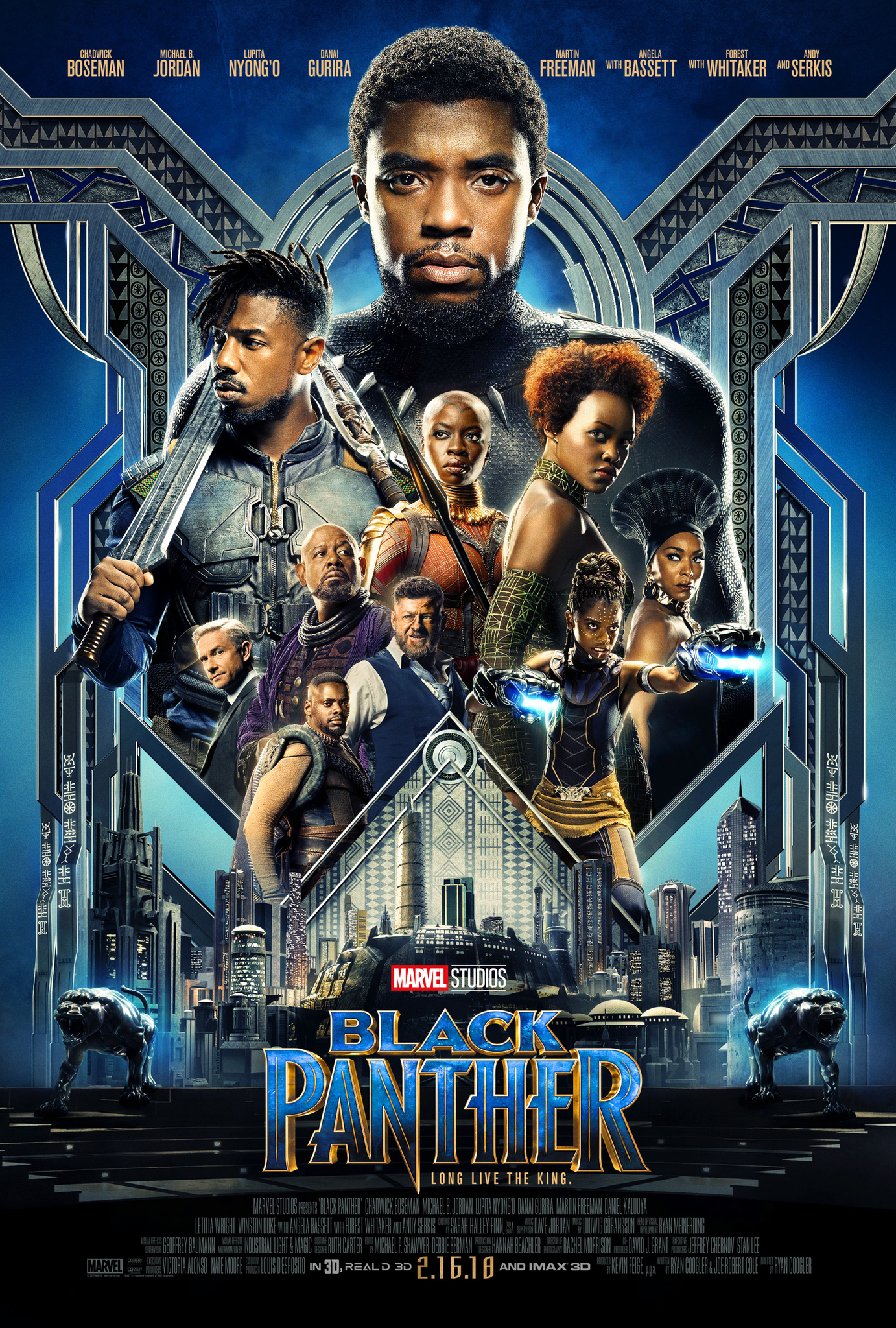
IMDB: 7.3/10
As the top Marvel film with a dominatingly dark cast, Black Panther is a social achievement that has pushed the case for more dark drove business motion pictures. Following up on Captain America’s occasions: Civil War, T’Challa (Boseman) re-visitations of the exceptionally secured country of Wakanda to take the mantle of its lord and defender, the Black Panther.
Notwithstanding, when his relinquished cousin shows up from the rest of the world, proposing to weaponize individuals of color across the world, questions are raised on the nation’s approach of not sharing its assets to advance the world.
The various fight successions that are staples of the class are available, yet they skim on the outside of a profound expanse of character advancement and thoughtfulness regarding subtleties both gaudy and moment. Wakanda is a completely fleshed-out, proudly Black universe, a world woven into an embroidery of the most extravagant, most honed tones and surfaces.
Rachel Morrison’s staggering cinematography and Ruth Carter’s ensembles pop so distinctively that they become practically material.
6. 21 Bridges (2019)

IMDB: 6.6/10
Andre Davis is an NYPD analyst with standing for chasing down lawbreakers who have murdered cops. His inspiration comes from the way that his dad was likewise killed in the line of obligation. One critical evening, two lawbreakers wind up destroying a couple of officials during a heist that badly, and Andre relegated the situation.
As the search for the two escalates, he begins revealing a scheme that associates the police division to an unlawful realm and questions his place in this feline and-mouse circumstance. In the end, all the 21 scaffolds associating with the island of Manhattan are closed to keep the suspects from getting away.
The various fight successions that are staples of the class are available, yet they skim on the outside of a profound expanse of character advancement and thoughtfulness regarding subtleties both gaudy and moment. Wakanda is a completely fleshed-out, proudly Black universe, a world woven into an embroidery of the most extravagant, most honed tones and surfaces.
Rachel Morrison’s staggering cinematography and Ruth Carter’s ensembles pop so distinctively that they become practically material.
7. Da 5 Bloods (2020)
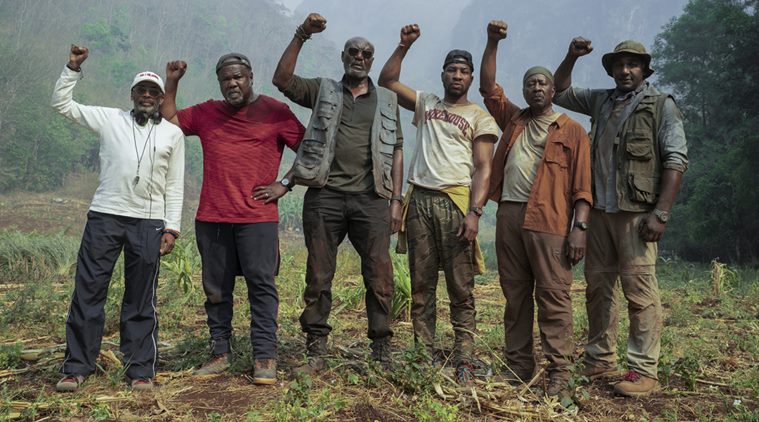
IMDB:6.5/10
During the Vietnam war, a gathering of five Black American officers chance upon a CIA plane crash and recuperate the payload, storage of gold bars. They choose to keep the gold and cover it to recover later. Tragically, their crew chief is executed in a Vietnamese assault, and an airstrike wrecks the markers where the fortune was covered.
A long time later, four of them rejoin in Ho Chi Minh city to attempt to discover the remaining parts of their perished chief and search for the buried fortune.
Spike Lee’s amazing “Da 5 Bloods” opens with Muhammad Ali and closes with Dr. Martin Luther King, Jr., two legends who are inseparably attached to the Civil Rights development and Black pride. Lee uses them to feature another shared trait: their arduous resistance to the Vietnam War.
For Ali, the complaint cost him a few gainful long stretches of his profession and his heavyweight title; for Dr. Lord, this new center was perhaps the final irritation that will be tolerated that prompted his death. The principal words we hear are Ali’s renowned clarification of why he wouldn’t enroll.
The final words we hear are from a discourse King gave on April 4, 1967, precisely one year before his homicide, where he cites writer Langston Hughes’ “Let America Be America Again.”
Interesting Read- 21 Hidden Shows On Netflix That Are Too Good To Stay Hidden


